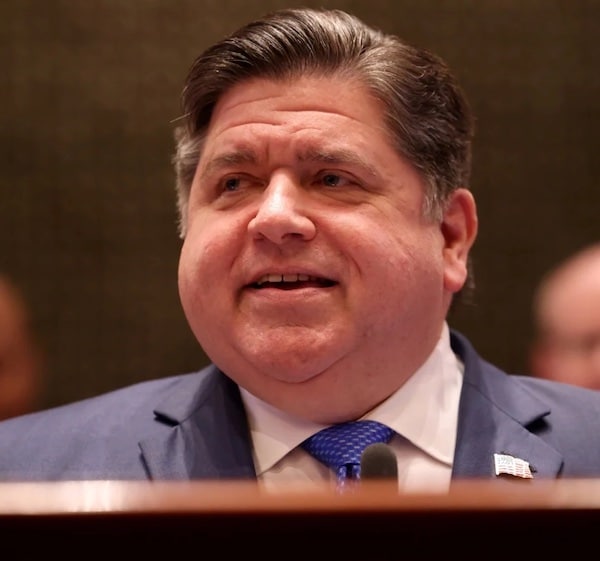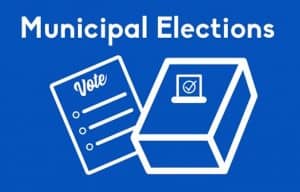State budget breakdown

The Illinois General Assembly last Wednesday passed a $53.1 billion state budget for fiscal year 2025, with some of the larger line items focusing on a regional quantum information science and technology campus as well as increased spending for education funding from early childhood through higher education.
As described in an article from Jerry Nowicki and Hannah Meisel of Capitol News Illinois, voting on the revenue plan and related bills ran late into the night and early morning as Democrats in the Illinois House of Representatives gave the final approval.
With lawmakers seeking an additional $1.1 billion in revenue to balance the 2025 budget, one of the larger sources of revenue came from the extension of an expiring cap on corporate net operating losses, ensuring that $526 million in tax dollars would remain.
$101 million for the state – along with $85 million for local municipalities – was also added as the revenue plan caps a retail tax discount of $1,000 per month.
For retailers, this change was counterbalanced as lawmakers prohibited fees from credit card companies on the sales tax and gratuity portion of electronic transactions. The Illinois Retail Merchants Association also received a $5 million line item for workforce grants.
An additional $200 million was also freed up in the budget as $150 million from the Road Fund and $50 million from the Leaking Underground Storage Fund was redirected to public transit.
Even more revenue was also found in the state’s sports betting and video gambling industries.
The tax on sportsbooks will increase from 15 percent to somewhere between 20 and 40 percent based on profits.
As for video gambling, the current 34 percent tax on net terminal income for establishments with gaming terminals was increased to 35 percent, though restaurants and bars with terminals – including those in Monroe County – will now be able to have six terminals while large truck stops with gaming licenses will be allowed to have 10.
Five-sixths of this 35 percent cut of net terminal income will go to the state, with the remaining one-sixth staying in the municipality, meaning that the percentage increase in video gambling tax will provide local communities with slightly more revenue.
When it comes to spending, infrastructure is among the largest items at $3.5 billion – including $500 million set to contribute to development of a regional quantum information science and technology campus.
Municipalities in the state will collectively receive $400 million for local road projects, an item which is meant to help diminish opposition to a statewide 1 percent grocery tax set to go into effect in 2026.
Lawmakers’ base salary saw a 5 percent increase, bringing it up to $93,712.
The spending plan also saw an annual $350 million increase in K-12 education funding, in line with a 2017 law overhauling Illinois’ school funding formula.
Additional items include $900 million for renovation of state prisons, $155 million for safety net hospitals, $30 million more for community colleges and public universities, $45 million for a teacher vacancy pilot program to help underserved districts with teacher retention, and a $70 million increase for Community Care Program workers serving older adults.
Receiving particular opposition from Republicans were several items centering around funding for non-citizens and migrants including $182 million to provide shelter, health care and other services. $440 million was set aside for two programs meant to provide state-funded Medicaid-like benefits.
Another substantial item included in the state budget was the Pretrial Success Act, a grant-based program meant to increase access to health and human services for those awaiting trial.
This serves as a follow-up to the implementation of the Pretrial Fairness Act which eliminated money bond in the state.
The act is intended to provide mental health and substance use disorder assessment, case management and treatment as well as transportation and child care for those awaiting trial.
“By increasing access to services, The Pretrial Success Act will improve community safety and court appearance rates,” said Rep. Maurice West (D-Rockford). “These resources will help people minimize future contact with the legal system by addressing underlying challenges that may have brought someone into contact with law enforcement. By reforming our pretrial system, we are building safer communities.”
Gov. JB Pritzker, a Democrat, spoke generally about the budget following its approval.
”I’ve said I would only support a balanced budget that makes good use of Illinois taxpayer dollars to make our state and its working families stronger — and the budget agreement fulfills both of those goals,” Pritzker said.
While the spending plan received broad support from Democrats, it passed with no Republican support as in recent years, with many conservative representatives speaking against it.
Locally, State Sen. Terri Bryant (R-Murphysboro) was among them, decrying a 32 percent increase in spending since Pritzker’s initial term.
Bryant further spoke against “prioritizing spending funds on non-citizen programs,” adding that additional focus should instead be placed on Direct Support Professionals.
“For years, Senate Republicans have warned Governor Pritzker and his allies that the use of temporary federal funds and unexpected revenue to create and grow new permanent spending was leading the state towards a fiscal cliff,” Bryant said. “Now, thanks to their desire to spend $1 billion per year on non-citizens, the citizens of our state will see increased taxes, so the majority party can hang onto the ledge of their irresponsible fiscal cliff.”
State Rep. David Friess (R-Red Bud) expressed a similar sentiment, speaking against the increase in spending and funds spent on non-citizens.
“Our constituents deserve a budget that prioritizes their needs and ensures responsible use of state resources. I will continue to fight for fiscal policies that reflect the true interests of Illinoisans and hold our government accountable for its spending. This budget is not responsible or sustainable, and that’s why I voted no.”






